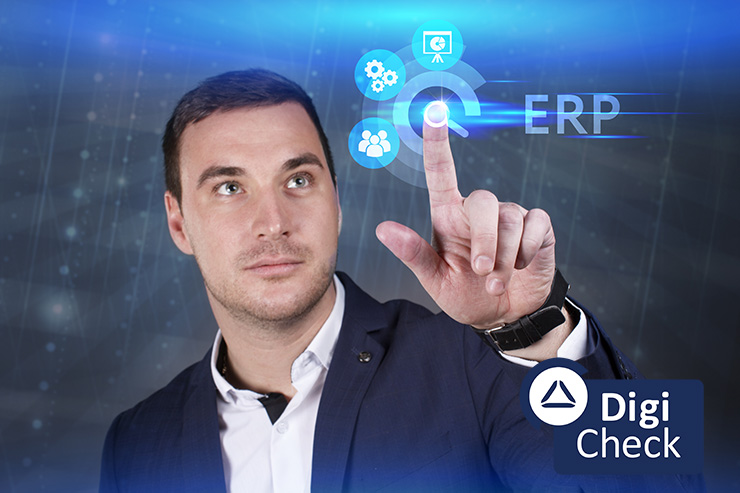Optimally preparing ERP projects in sevens steps

ERP projects are often complex – regardless of whether they involve replacing an old system or an initial implementation. Those who understand the importance of the preparatory phase – i.e. the stage prior to software selection and implementation – increase their chances of project success. But what should you pay particular attention to during preparation? We have compiled the most important points.
1. Get support from the top
ERP systems are the key element of a company’s IT and as such are deeply rooted in company processes. Launching new software or changing to alternative software therefore automatically becomes a strategic matter that requires full support from company management. They not only have a complete overview of the company and its situation, but for many medium-sized businesses, purchasing a new ERP system is also a financial challenge.
2. Consider the bigger picture
Taking a holistic approach to processes and systems allows new software to reach its full potential. In fact, the risk of failure increases when the ERP system and its neighboring IT solutions are not interconnected in overarching company processes.
This is why we often implement ERP projects for our customers as part of integrated digitization strategies. ERP is the core of a future-oriented ecosystem, which efficiently supports the maximum number of end-to-end processes in the company.
However, strategy and technology alone are not enough to achieve this. It is equally important to take cultural change processes into account in the context of a digital consulting project.
3. Assemble project teams carefully
ERP projects require professional project management. This includes having an optimally assembled project team made up of internal and external members.
The internal team members fully understand the business and day-to-day life at the company. This is why people involved in operations as well as management should be included in the project team. This also encourages acceptance of the project across the entire company.
The project is likely to run even more smoothly when expert external ERP consultants are involved, for example within the scope of integrated IT consulting, which we offer as an additional service in our projects.
Compare benchmarks now and get consulting. We offer you a free online survey that enables an initial analysis of your digital business processes - holistically or departmentally.
4. Invest more time in the design stage
A comprehensive project concept is the foundation for organized progress. It should be established before software selection and implementation and should include aspects such as goals, times, priorities, and risk management. Here are some typical questions that the project concept should address:
What is our current status? – What are the reasons for implementing an ERP system? – What change do we want to achieve? – What are our central processes? – What is our envisaged timescale?
At COSMO CONSULT, we have been working with cc|SureStep plus, an implementation method for ERP projects based on the PMI standard (Project Management Institute), for more than 20 years. The starting point is the “Diagnostic phase”, which focuses on the project concept.
5. Analyze your business processes in more detail
A detailed analysis of existing business and system processes is instrumental to selecting the right software at a later date. An initial comparison between operational requirements and existing functionality determines whether a particular solution is more or less suitable. Our cc|SureStep “Analysis” and “Design” phases with tried-and-tested templates, tools, and procedures are helpful for this.
If processes change during the course of the project, it makes sense to only tackle the next phases once the process design has been finalized. If an integrated digitization strategy is the basis of the project, the DigiCheck is a useful addition for analysis and design. It provides an objective inventory of existing digital business processes.
6. Scrutinize your data
A vital prerequisite for a successful project is clean, traceable data and data structures. This is why the analysis of process-related data (master and transaction data) is particularly important – this also applies to data transfers in the context of a migration concept. Identifying old or missing data or data structures too late can result in significant project risks.
7. Be discerning when it comes to software
Once company management is behind the ERP implementation, a digitization strategy has been defined, a project team has been drawn up, and the Diagnostics, Analysis, and Design phases have been completed, it is time to look for the best solution. The selection procedure answers the following questions:
What are our decision criteria? – What providers are being considered? – How can we test different solutions?
COSMO CONSULT uses many useful best practices to help you with this. Just get in touch to find out more!
Don’t miss out on our free webinar series with lots of helpful tips on preparing for ERP implementations!

